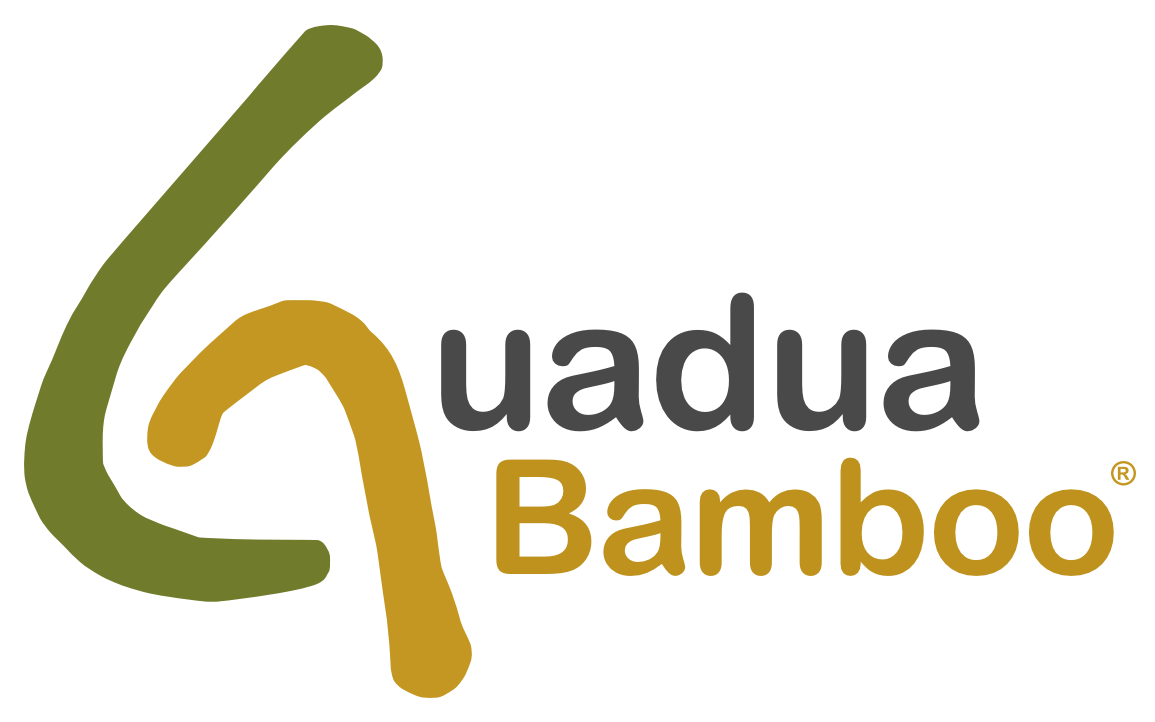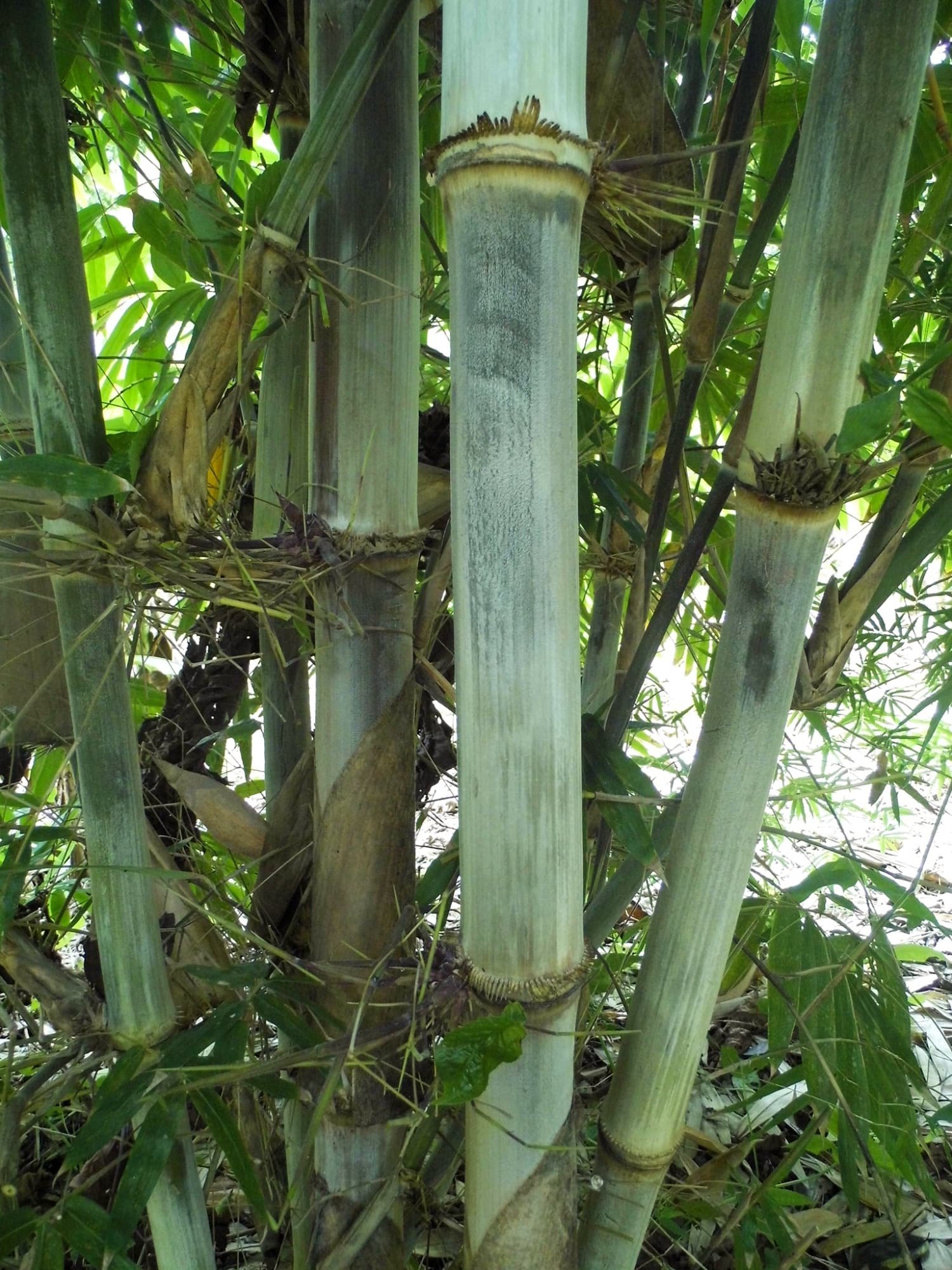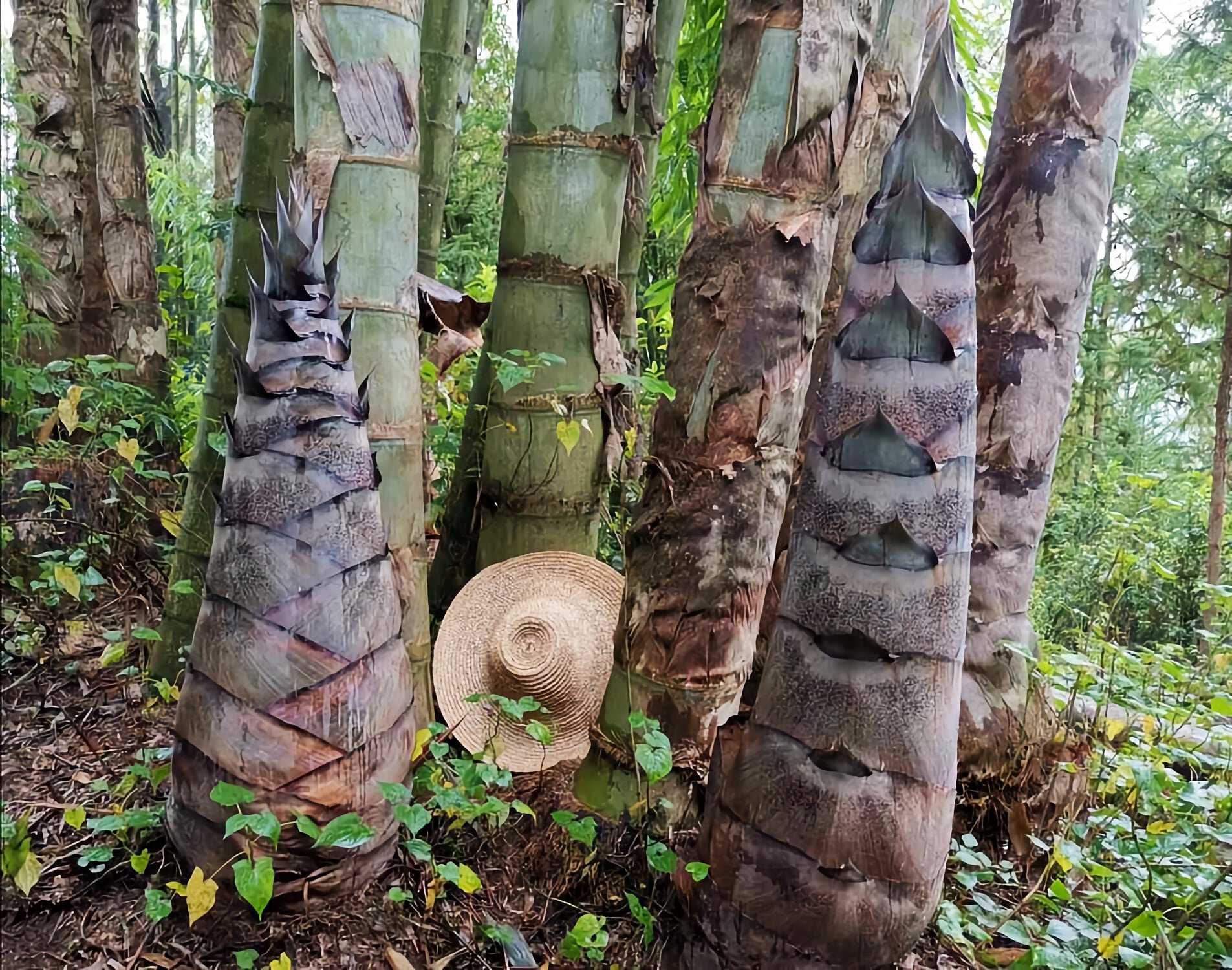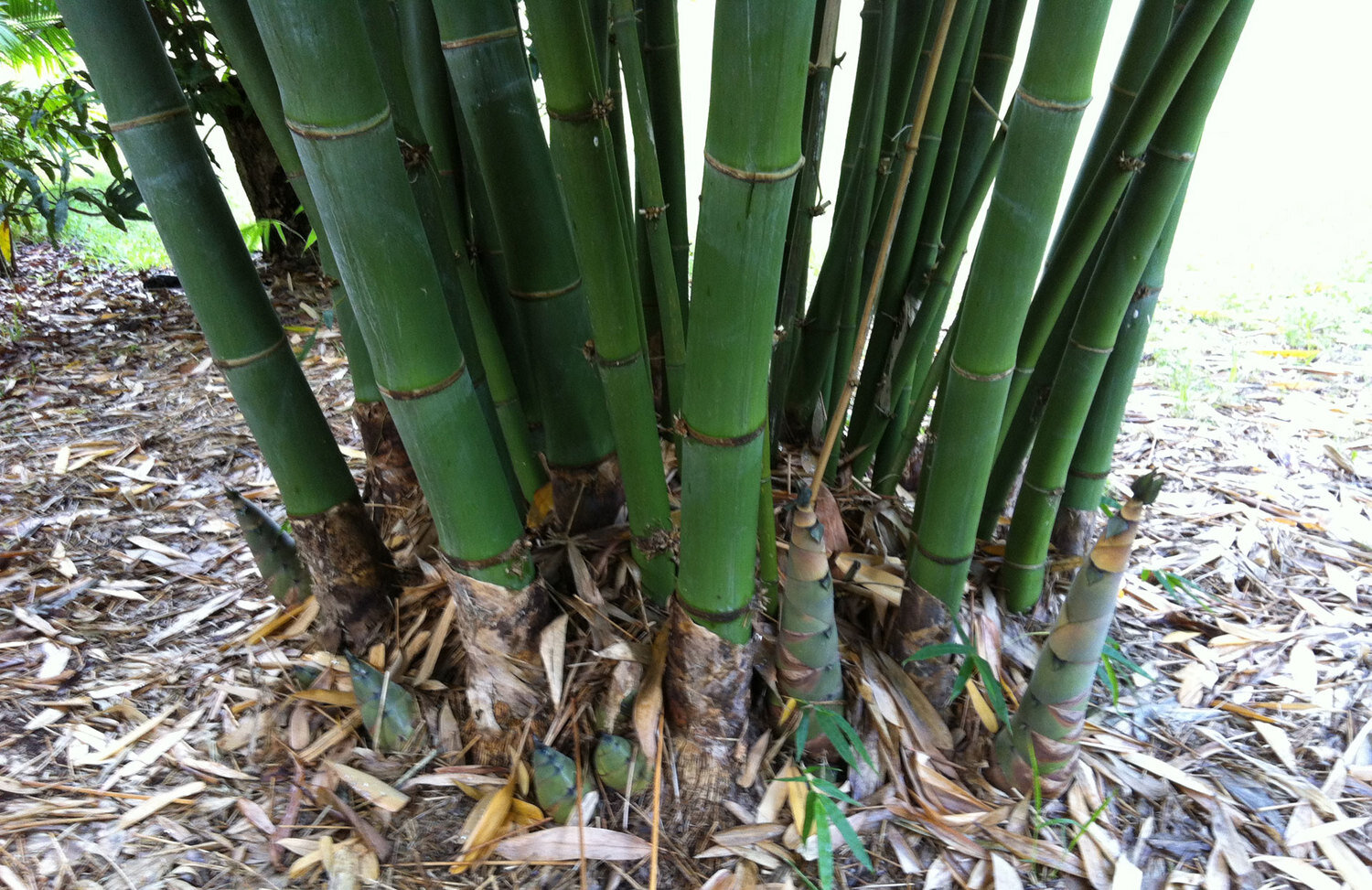Dendrocalamus brandisii
Dendrocalamus brandisii also known as Velvet Leaf Bamboo, Teddy Bear Bamboo, or Sweet Dragon Bamboo is one of the largest tropical clumping bamboos in the world. It grows native in Southeast Asia and is often used as a building material.
Summary
| Height | 19 - 33 m |
| Diameter | 13 - 20 cm |
| Growth Habit | Dense Clumping |
| Climate | Tropical - Subtropical |
| Hardiness | -3°C |
| Origin | Southeast Asia |
Photos
Culms
Dendrocalamus brandisii is a very large evergreen tufted bamboo. Culms have an ashy-gray to greenish-gray color and are on average between 19-33 m high and 13-20 cm diameter. The thick walled internodes are between 30-38 cm long. Nodes are slightly swollen with rootlets showing on the lowest nodes. Young shoots are dark-gray with a dark-brown blade.
Branches
Many clustered branches with 1 larger dominant branch.
Leaves
The arrow-shaped leaves are between 20-30 cm long and 2.5-5 cm broad, and have minuscule short white hairs covering the leaf surface when young.
Seeds
The species is known to flower sporadically as well as gregariously. Gregarious flowering was last reported in 1987-1988 in Manipur.
Habitat
Dendrocalamus brandisii grows best in wet evergreen tropical forests up to 1,300 m altitude. This bamboo grows on different soil types but prefer well-drained loamy soil.
Uses
Culms are used for building construction, boat masts, furniture, farm implements, water pots, basketry, handicrafts, paper making. Shoots are edible and consumed as a vegetable.
Origin
India: north-eastern part (Manipur), and Andaman Islands; Burma: from the Kachin hills to Tavoy (Tenasserim) up to 1,200 m altitude; Thailand: northern part at 1,000 - 1,300 m altitude; Laos; Vietnam: Tonkin; China: Yunnan at 380 - 1,900 m altitude.















